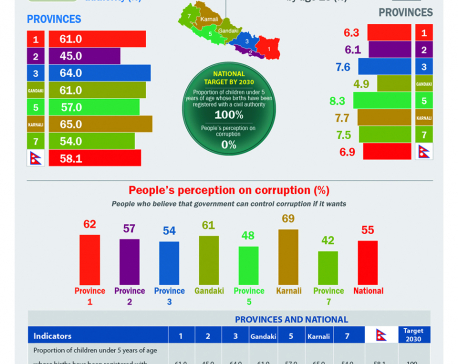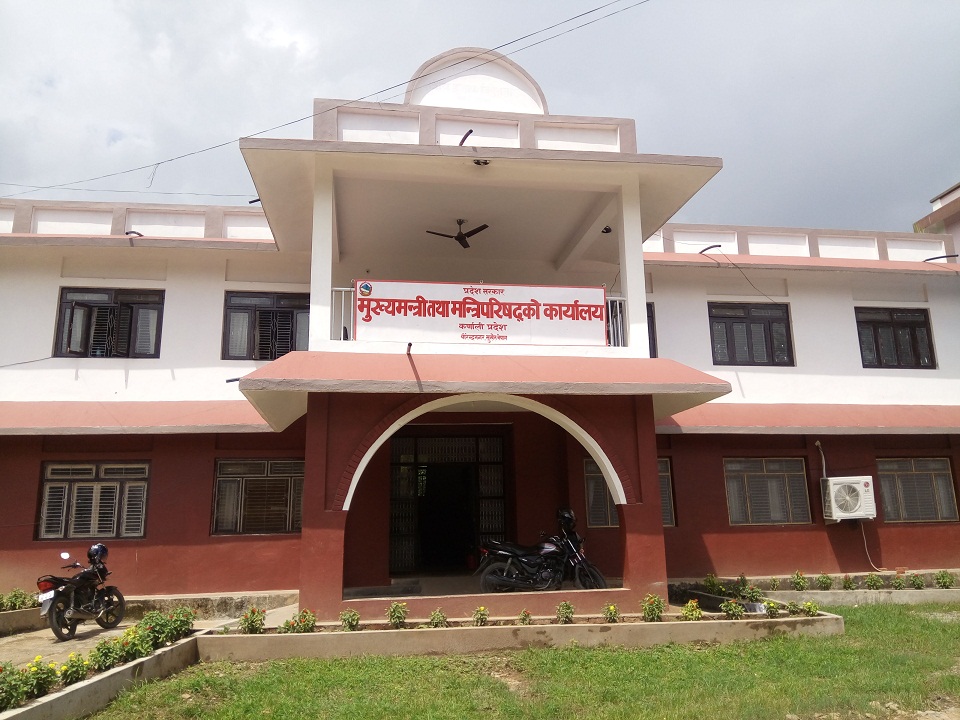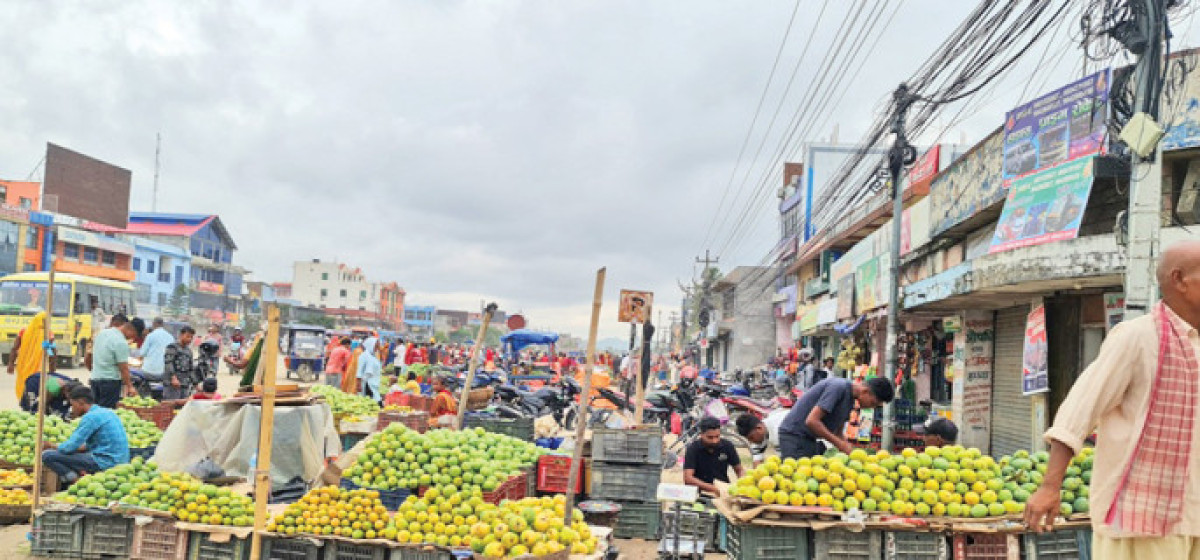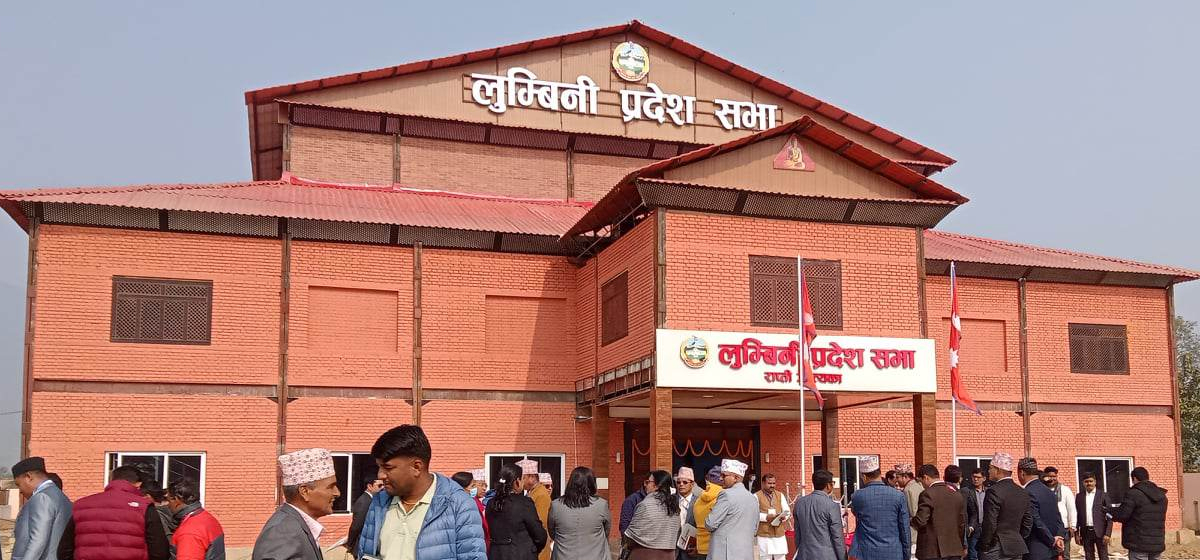
OR
After 12 years of peace, justice still elusive
Published On: November 22, 2018 02:00 AM NPT By: Republica | @RepublicaNepal
Nepali politicians are right about one thing: Nepal’s peace process has been exemplary. Various international bodies have also acknowledged it as much. By bringing the warring Maoists into the mainstream politics and under democratic framework, political actors of the day had not only put an end to decade-long war, killing and great infrastructure loss, they also set the foundation for Federal Democratic Republic Nepal. Peace, no doubt, is a relative term. But looking back to the years of violence and conflict, we cannot imagine where we would be now if the insurgents had not agreed to come to the negotiation table with the democratic forces and if the state of hostility continued longer, or worse, to this day. Nepali political leaders, civil society stalwarts and all those who contributed to this cause deserve appreciation.
Maoist war formally came to an end when Pushpa Kamal Dahal ‘Prachanda’ on behalf of the Communist Party of Nepal (Maoist) and Girija Prasad Koirala, Prime Minister of Nepal at the time, signed the Comprehensive Peace Accord (CPA) on November 21, 2006. It set three ambitious plans to change Nepal’s socio-political landscape: socio-political transformation, integration and rehabilitation of Maoist combatants and ensuring justice to victims of conflict. Needless to say, we have become successful on first two fronts. Nepal promulgated federal democratic republican constitution through sovereign Constituent Assembly. As per the provisions of new constitution, the country has been restructured into federal state. We have a federal government, seven provincial governments and 753 local governments in functioning state. Likewise, the government of the day successfully completed integration and rehabilitation process of Maoist soldiers in 2013. Those who did not opt for integration have returned to their respective communities and started their own enterprises with compensation money granted by the government. These are no small feats.
However, our peace process is conspicuous for not being able to ensure justice to the victims of war. The performance of Truth and Reconciliation Commission (TRC) and Commission for the Investigation of Enforced Disappeared Persons (CIEDP) has not been inspiring. Constituted in 2015 with the mandate of finding truths regarding deaths and disappearances of people during the conflict and recommending actions for justice, reconciliation and compensation, the twin transitional justice bodies have not been able to do more than receiving over 63,000 complaints (at TRC) and 3,000 other complaints (at CIEDP). Their extended terms will expire on February 26, 2019. Twelve years after the CPA, victims are still not assured of justice and they complain that political class tends to ignore their concerns while taking forward the process. Also, there is great unease and fear among the victims that amnesty might be granted to even perpetrators of heinous crimes and serious human rights violations. It must be ensured that their worst fears do not come true. Our peace process has cost us a lot. A rough calculation shows that we have already spent over Rs 166 billion in this process. Today, we have the powerful government in place, with over a two-thirds majority in the parliament, with former Maoists on board. The onus is on this government to conclude the remaining task, once and for all. Leaders, back in 2006, surprised the world by coming together for peace. It is time for them to stand together once again to ensure that transitional justice process will be concluded and justice will be done to the victims. Nepal, then, will be setting another good example to the rest of the world.
You May Like This

Where are the disappeared?
Friday marked the International Day of the Disappeared, the day to draw the attention to the fate of individuals whose... Read More...

Political quick-fix won’t provide justice
The Khmer Rouge tribunals found the two most senior Khmer Rouge leaders guilty of genocide, 40 years after the fall... Read More...

Infographics: Peace, justice and strong institutions
Peace, justice and strong institutions ... Read More...

Just In
- Karnali CM Kandel secures vote of confidence
- National Youth Scientists Conference to be organized in Surkhet
- Rautahat traders call for extended night market hours amid summer heat
- Resignation of JSP minister rejected in Lumbini province
- Russia warns NATO nuclear facilities in Poland could become military target
- 16th Five Year Plan: Govt unveils 40 goals for prosperity (with full list)
- SC hearing on fake Bhutanese refugees case involving ex-deputy PM Rayamajhi today
- Clash erupts between police and agitating locals in Dhanusha, nine tear gas shells fired


















Leave A Comment